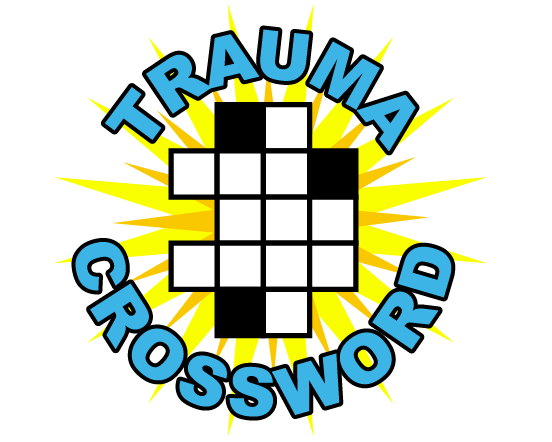|
*|MC_PREVIEW_TEXT|*
|

|
|
04/08/2025
|
|
IT’S TRAUMA TUESDAY
Is a Free Weekly Newsletter
Brought to you by
TCAR Education Programs
|
|
For nurses and other clinicians practicing anywhere
along the trauma care spectrum
|
|
|
|
|
|
Take a quick test of your trauma care knowledge
|

|

|

|
|
|

|
|
Article of the Week
Adverse Prehospital Events and Outcomes After Traumatic Brain Injury
|
|
In the early phase of TBI care, hypoxia, hypotension, and hypocarbia (hyperventilation) are known risk factors for poor outcomes in patients with traumatic brain injury. But how bad are these events? This multicenter study found the odds of ED death MORE THAN DOUBLED in patients who experienced an episode of prehospital hypoxia or hypotension. And, for those who were hyperventilated, mortality increased nearly 8 fold. Wow! These findings emphasize the importance of what we do in the field and at the bedside.
|
|
|
|
Maiga AW, Lin HS, Wisniewski SR, et al. Adverse Prehospital Events and Outcomes After Traumatic Brain Injury. JAMA Netw Open. 2025;8(1):e2457506
|
|
|

|
|
Media of the Month
One Doctor: Close Calls, Cold Cases, and the Mysteries of Medicine by Brendan Reilly
|
|
This book provides readers with a riveting and remarkably frank first-person narrative describing one physician's career in particular and the state of medical care in the U.S. in general. The author is an excellent storyteller who shares his experiences with sensitivity and empathy while highlighting the good, the bad, and the ugly of healthcare today. Kindle, Audiobook, hardcover, and paperback editions are available on Amazon and elsewhere.
|
|
|
|
|
![]()
|

|
|
What's the difference between the US and UK quizzes and crossword puzzles?
|
|
First, it's the spelling! British English loves to add an extra vowel to many words. For example, add an A to get haemodynamic, paediatric, haemoglobin, anaesthesia, orthopaedic, and hyperkalaemia. Add a U for colour, behaviour, favourite, and tumour. And throw in an O to spell oedema, oesophagus, otorrhoea, foetus, and dyspnoea. Moreover, the Brits are not fans of the letter Z (pronounced "Zed"). Replace Z with S, and you get alkalinise, immunise, traumatise, heparinise, and analyse. And, then there's the "RE" to "ER" switch, which gives us centre, fibre, metre, and litre. With all of these differences (and many more!), it would be challenging to get a crossword puzzle correct. Thus, the It'sTrauma Tuesday newsletter offers both American and British English versions. Check back next week to learn about common terminology differences.
|
|
|
|
|
|
You can reveal a letter or the entire word if you get stuck
|

|

|

|
|
|
![]()
|

|
|
When it Comes to Reattachment, is it "Replantation" or "Reimplantation?"
|
|
Following amputation, is "Replantation" or "Reimplantation" the correct term? Technically, both words are correct and are often used interchangeably. In contrast, when there is some tissue still attached and reattachment requires microsurgical repair of the vessels, this process is called "Revascularization."
|
|
|
|
|

|
|
|
|
|
|
Follow Us
Want to join the trauma care conversation?
Follow Us on Facebook, Instagram, and X.
|

|
|
|
|
|

|
|
TCAR Education Programs
tcarprograms.org
info@tcarprograms.org
Office: (503) 608-4900
International Toll-Free: +1 800-800-2015
|
|
Copyright © 2025 TCAR Education Programs. All rights reserved.
You are receiving this email because you opted in by purchasing or registering for a course or subscribing to our newsletter on our website.
Want to change how you receive these emails?
You can
update your preferences or
unsubscribe
|